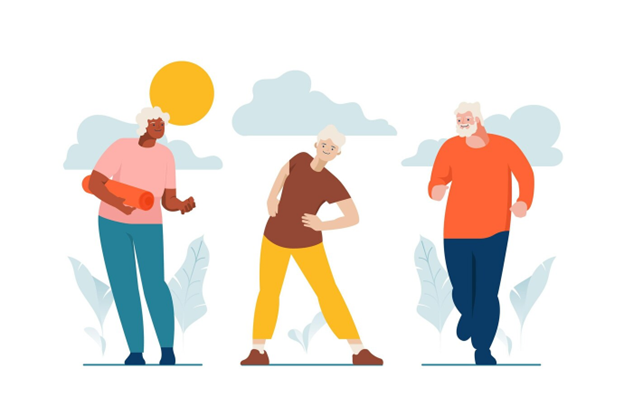Understanding Balance Problems in the Elderly: Focus on Ear-Related Issues
As people age, maintaining balance becomes crucial. Balance problems in the elderly are common and can significantly affect their quality of life. These issues can make everyday tasks difficult, increasing the risk of falls. While balance problems are often linked to various causes, inner ear disorders are one of the primary contributors, affecting many seniors.

What Are Balance Problems?
Balance issues occur when seniors struggle to remain steady on their feet. The human body relies on a complex system, primarily involving the inner ear, eyes, and muscles to maintain balance. As we age, this system can become less efficient, making it harder to stay steady.
Ear-related balance problems often stem from issues in the inner ear, where the vestibular system controls balance. This system can become less effective over time, leading to dizziness, unsteadiness, and falls. Seniors with ear-related balance issues often feel wobbly or disoriented, making it harder to walk or stand confidently.
Causes and Impacts of Balance Problems in Elderly
As we age, several changes in the body can affect the ear’s balance mechanism. Some key causes include:
- Inner Ear Disorders:
Conditions like Benign Paroxysmal Positional Vertigo (BPPV), Meniere’s disease, or labyrinthitis disrupt the inner ear’s function, leading to dizziness and loss of balance. - Hearing Loss:
Age-related hearing loss can sometimes affect the ear’s ability to maintain balance. The cochlea and vestibular system are interconnected, and damage to one can affect the other. - Neurological Disorders:
Conditions like Parkinson’s disease or stroke can affect the brain’s ability to process signals from the inner ear, contributing to balance issues. - Medications:
Certain medications, like antihistamines or sedatives, can affect the inner ear and cause dizziness or lightheadedness, which can worsen balance problems. - Environmental Factors:
Poor lighting, uneven floors, and inadequate support can exacerbate balance issues in the elderly, especially when they already struggle with inner ear disorders.
Identifying Symptoms and Their Psychological Effects
- Seniors with ear-related balance problems may experience:
- Dizziness or vertigo (feeling like the room is spinning)
- Unsteadiness when walking or standing
- Loss of coordination or difficulty maintaining posture
- The psychological effects can be profound. Fear of falling may lead to anxiety, causing seniors to avoid certain activities, reducing their independence. This can also lead to social isolation, as the fear of embarrassment can prevent them from participating in daily activities or social events.
Preventive Approaches and Healthy Lifestyle Choices
Managing balance problems in the elderly due to ear issues often involves a combination of lifestyle changes and targeted treatments. Consider the following tips:
- Ear Health Maintenance:
Keep your ear health in check by visiting an ENT specialist regularly. Early detection of ear-related balance issues can prevent further complications. - Exercise and Balance Training:
Regular exercises like tai chi, yoga, or vestibular rehabilitation therapy can help improve balance and strengthen the inner ear’s functioning. - Physical Therapy:
Working with a therapist can help seniors improve their coordination and balance, especially if inner ear problems are causing the imbalance. - Home Safety:
Ensure that the home is free from tripping hazards and that areas like the bathroom are equipped with grab bars. Adequate lighting is also essential. - Hearing Aids and Assistive Devices:
If hearing loss contributes to balance problems, using hearing aids or other assistive devices can help.
Seeking Solutions: Treatment and Innovations
Innovative treatments, like vestibular rehabilitation therapy and medications, are making a difference in managing ear-related balance issues in seniors. Centers like Asian ENT are offering cutting-edge diagnostics and personalized treatments, helping elderly patients regain their balance and confidence.
Conclusion: Supporting Seniors with Balance Issues
By understanding the connection between ear health and balance problems, families and caregivers can offer better support. From early diagnosis and treatment to creating a safer living environment, addressing ear-related balance issues can significantly improve quality of life. Encourage regular check-ups with ENT specialists, incorporate balance exercises, and promote a healthy lifestyle to help seniors maintain their independence and well-being.

